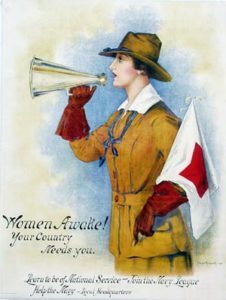 Over the years, more than one person observed Jerry Sandusky, head of the nonprofit organization The Second Mile and former Penn State defensive coordinator, having sex with boys. Yet none of those people called the police, and none of the people in authority that they told about what they saw called police.
Over the years, more than one person observed Jerry Sandusky, head of the nonprofit organization The Second Mile and former Penn State defensive coordinator, having sex with boys. Yet none of those people called the police, and none of the people in authority that they told about what they saw called police.
Why?
A leading candidate for the Republican nomination for President of the USA is being accused of sexual harassment by women who worked for a business association he lead, and by a woman who claims when she asked for help getting a job, he pressured her for sex (and, yes, the latter is sexual harassment – a coercive request for sex in exchange for a job, a good grade or other non-sexual “reward”). But people looked the other way, this latest accuser didn’t say anything at the time and for many years, and this man kept moving up in his political party to where he is now.
Why didn’t people in the know say more?
I have the answer to both of those questions: the consequences for the accuser or witness of saying something to people in authority or to the police seemed greater, and worse, than saying nothing. Consciously or unconsciously, people said to themselves, I don’t want to deal with this. This makes me uncomfortable. I may lose my job / never get a job if I say something. I don’t want this to define me, to follow me at this job and all jobs in the future. Maybe he’s better now or maybe someone else will deal with this. I don’t want to be the bad guy. It’s easier for me and this organization not to say anything.
I am not at all excusing the behavior of all the people who didn’t speak out. Penn State’s Athletic director and one of the university’s vice president have not only lost their jobs: they face possible prison time for lying to a grand jury and for not reporting to proper authorities the allegations of sexual misconduct. And that is exactly as it should be. Shame on them! It’s a shame that people in the Catholic Church who knew about sexual assaults by many priests weren’t similarly punished.
But I am challenging nonprofits, non-governmental agencies, universities, government departments and other mission-based programs – and particularly aid agencies with staff members in the field! – to take a hard look at not just their policies, but their culture.
Are you never hearing about inappropriate behavior by employees or volunteers at your organization not because nothing is happening, but because people don’t feel comfortable saying anything?
The consequences of a culture that, intentionally or not, discourages victims and witnesses from coming forward can even be deadly: Kate Puzey, a Peace Corps volunteer in the west African nation of Benin in 2009, was murdered in apparent retaliation for accusing a local Peace Corps staff member of child sexual assault. Her murder, and the poor reaction of the Peace Corps administration to this and to reported sexual assaults on Peace Corps members themselves, lead to a volunteer protection act, passed by Congress this year, establishing sexual assault policies and training to protect victims and whistle-blowers.
What about your organization?
- Are you going to look at not only your policies, but your practice?
- Do you do trainings and awareness activities for employees and volunteers regarding sexual harassment and inappropriate behavior every year?
- What do you do to create a welcoming environment regarding the reporting of inappropriate behavior?
- What do your individual employees and volunteers say about your organization’s culture, particularly in how comfortable they would feel reporting suspected inappropriate or even criminal behavior by someone, particularly a person in authority?
And in case you are wondering – yes, this is a personally important issue to me.
